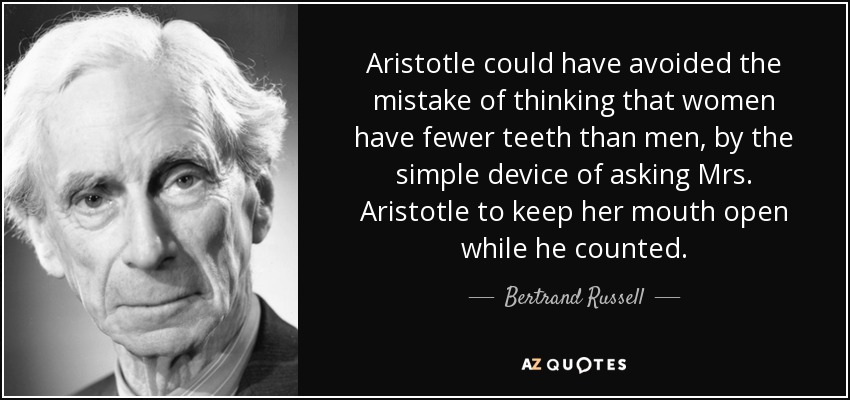One day in class, we questioned how to approach Aristotle within our rhetoric education. He believed in natural slavery, the idea that certain people and groups are wired to be subservient to others. He notoriously advocated to silence and exclude women, referred to non-Hellenistic foreigners as “barbarians”, and recommended that “deformed” children not be raised. But he also was among the first to frame rhetoric as a legitimate field of study, fathered the rhetorical proofs, and contributed myriad other ideas that inform the field of rhetoric today. What do we do with that?
I’m of the mindset that ideas and other creations are inextricably linked to their creators. We cannot “separate the art from the artist”, so to speak, because an artist’s cultural background and beliefs inform their art. The same goes for all fields. As Steven Combs states in Challenging Greco-Roman Argumentation Trajectories: Argument Norms and Cultural Traditions:
“Argumentation is a manifestation of particular patterns of human interaction drawn from diverse assumptions regarding everything from the nature of reality to the most preferable ways for humans to live. In short, cultural patterns and traditions form an environmental field that conditions the precepts, principles, and trajectories of argumentation”
In the same vein, Aristotle’s beliefs about natural slavery and distaste for women, foreigners, and people with disabilities informed his rhetorical theory.
Take for example his idea of meritocracy: a political system built on exclusion. In a meritocracy, a person’s status depends on their achievements. While this may sound fair in theory—we were raised nursing that “anyone can make it with hard work” myth, after all—we need only remember the historical and historiographical exclusion of women and people of color in all fields of study to see the holes in it. Are high-achieving, pioneering people belonging to minority groups appropriately recognized for their merits, historically? Certainly not. Furthermore, barriers like wealth and power limit the opportunity for achievement to the already-privileged.
Aristotle’s philosophy of natural slavery ties into this too: he argued that some people were intrinsically incapable of critical, rational thought, and were thusly better suited to serving those who were. Once again, this privileges wealthy white men, with some additional ableist seasoning.
Of course, the meritocracy is just one example of how Aristotle’s beliefs shaped his theories. As all rhetoric is culturally and traditionally-bound, all of his ideas were similarly shaped.
As for what we can do with this, I think Luming Mao got it right in Thinking Beyond Aristotle. We should consider that there is no common essence or usage, no “exclusive set of objects”, which accurately applies to all rhetorics. We should aim to detach from the historical White Greek Guy framework when studying rhetorics from other cultures and time periods as much as is possible, as well as work on “[reinstating]” instances of erasure” and “[resurrecting] knowledge that has been buried, disqualified, or ruled out of order”. Who is left out of the picture, and what are their cultural and traditional values? How did this shape what they say and think? How do our judgments honor those values?
 |
To me, this is not an imperative to stop teaching Aristotle. Instead, it is a call to acknowledge his beliefs as we teach his theories. I don’t feel right dismissing Aristotle as a product of his time and culture, shrugging, and saying, “Well, his ideas still hold up!” Not only because he had some hilariously inaccurate ideas—the guy believed men had more teeth than women—but because his ideas were very much rooted in his beliefs, as all ideas are.

Brynn, I think this is a great discussion that can tie to how we discuss figures all throughout history, especially in the United States. It's a struggle to figure out how to balance the good that someone has done versus the evil that they have also incurred. I read a really interesting Twitter thread earlier this year where it went through every single President and talked about the "dark" side that our history books don't include. It was really eye-opening, because so much of it was stuff that we don't learn about in school. You offer a good perspective here: we can talk about the good things, but we have to balance it with the negative and acknowledge that these figures were people with flaws, and some of them (if not all) made decisions that unjustly hurt large groups of people throughout history. It makes me think, too, about the new "educational" system that the current presidential administration is trying to pass, where we get rid of the "racist" history we tell now. It's so upsetting to think about.
ReplyDeleteThank you Mary! I'm glad you brought up the importance of that sort of decolonial history--I'm still thinking about that Black Women's History of the United States book you mentioned and hopefully I can get my hands on it soon. Trump pushing for a patriotic education is crushingly upsetting to me too--I already feel so betrayed by my own education in that I didn't really learn about indigenous genocide until my junior year of high school, and I think I was only able to then because I went to a very liberal private school. I would love to see us work decolonialism and antiracism into our common core eventually.
Delete